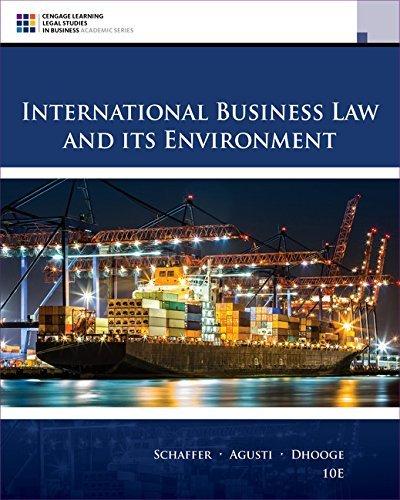Tetra Laval, a Swedish company that is the world's largest carton-packaging manufacturer, decided to expand into the
Question:
1. What evidence would have supported the Merger Task Force's decision and led to a different result?
2. Is "leveraging" now wrong in the absence of anticompetitive effect in the EU? How could the vertical restrictions have posed more of a competitive threat?
Fantastic news! We've Found the answer you've been seeking!
Step by Step Answer:
Related Book For 

International Business Law And Its Environment
ISBN: 9781305972599
10th Edition
Authors: Richard Schaffer, Filiberto Agusti, Lucien J. Dhooge
Question Posted:





